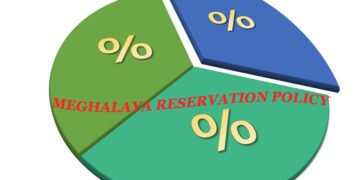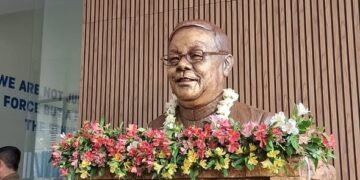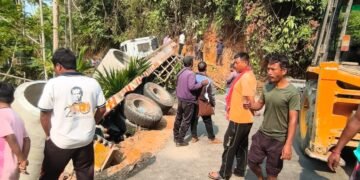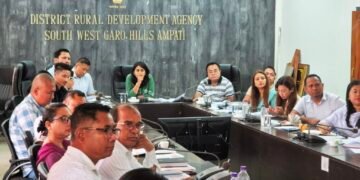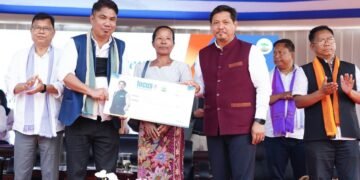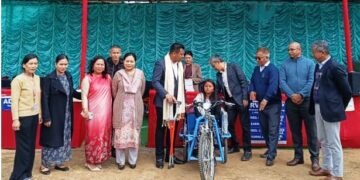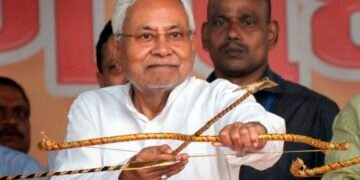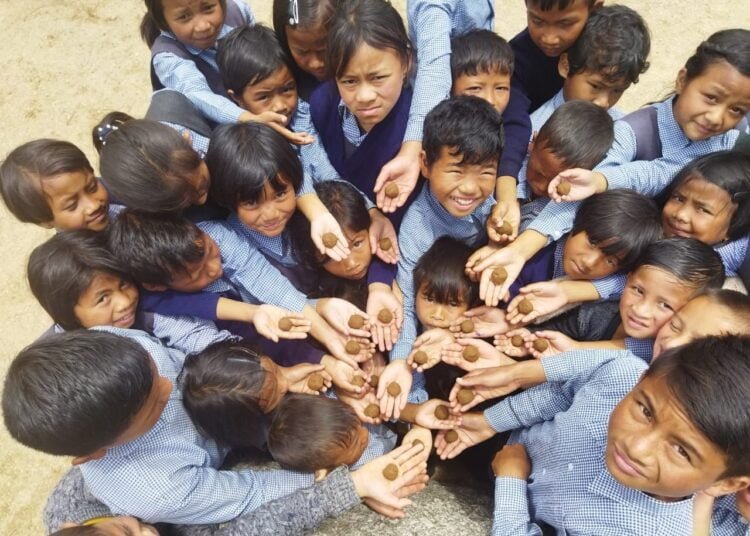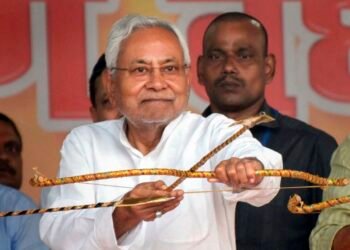Meghalaya Environment Week 2022, which is part of the World Environment Day celebrations, kicked off today with the launch of a ‘Seed Ball Initiative’ at Harding Theological College, Tura.
Hundreds of students from across the state took part in seed ball broadcasting at their respective blocks. This is the first activity of a series of events to be held until June 7 being organized collaboratively by a number of departments and agencies, including the Centre of Excellence for Natural Resource Management and sustainable Livelihoods, Meghalaya Basin Management Agency, Soil and Water Conservation Department, Forest and Environment Department, Community and Rural Development Department, State Rural Employment Society, State Council of Science, Technology and Environment, and Agriculture Department.
This first day was celebrated as ‘Environment Technology Day’ and it showcased potential technologies that can aid in natural resource management.
During the event, Forests and Environment Minister James PK Sangma, who was the chief guest, stated that the week-long event is to promote awareness about the issues of the environment and the various interventions that can cope with them. The future of the environment rests in the hands of the youths and students and the government is therefore encouraging their participation in the seed ball distribution/dispersal at their respective schools, home gardens, forests, etc.
He informed that seed ball broadcasting is a low-cost method of enhancing green cover in Meghalaya in a widespread manner. It is an efficient way of seed dispersal, and the rate of germination is as high as 70 percent, which is comparable to conventional plantation methods.
The exercise can be done either by throwing or by using catapults for dispersing the seed balls from a distance. Furthermore, in inaccessible terrains, drones will be used to disperse the seeds. Sangma added that he is pleased to learn that the MBMA has developed these drones in-house and the minister is eager to witness the demonstration of this technology.
Further, the CoE is also carrying out an extensive exercise to map the natural resource management (NRM) boundaries of all 6,000-plus villages in Meghalaya through GPS given there is no cadastral survey in the state and its need when implementing various NRM-related interventions.
The MBMA has undertaken the exercise of capturing the boundaries of the villages with the help of the local communities and village community facilitators (VCFs). These VCFs are trained by MBMA to facilitate community-led NRM planning and implementation on the field and are skilled in capturing village boundaries using GPS and Google Earth. They will traverse the boundaries along with the village elders whose knowledge is most needed. The lab has created NRM boundaries for about 2,200 villages thus far.
Over 400 students and 100 village NRM committee members were present to participate in the celebrations at Harding Theological College.


